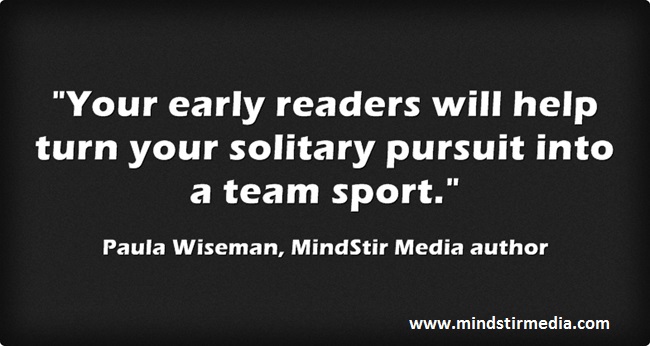
Last post we looked at how having a small group of readers can help fine tune your work. I have an amazing group of early readers who let me bounce ideas off them, who act as guinea pigs for my stories and who share in every milestone. I wouldn’t want to write without them. They freely offer encouragement and priceless feedback on each project. If you’d like to assemble or add to your group, here are some things to consider.
Experience – They read, and have read, a lot. It doesn’t necessarily have to be the genre you’re writing, although that’s helpful, but they have well-developed instincts about what makes a good and bad story.
Candor – They can be truthful with you about your baby. If it’s ugly they need to say so, and you need to hear it. I told one of my early readers, “If you don’t tell me when things are bad, I won’t believe you when you say they’re good.”
Investment – They are sold on the story and its underlying message and want to see it in the hands of other readers.
Commitment – They are willing to stick with you through the whole process. Granted, they aren’t committing raising your kids for you, but for a writer, it’s close. They need to be available for emails or some face to face time over a period of months, maybe even years.
So go through your list of family, friends, and writing buddies, choose 2 or 3 and test the waters. “Hey I’ve been working on this story in my spare time. It’s about … Would you care to take a look at it for me?” It’s that simple.
Your early readers will help turn your solitary pursuit into a team sport. Trust me, there are few things as enduring as the bonds forged during the creation of a story.
Paula Wiseman is an award-winning, bestselling author. Paula has published six books with book publisher MindStir Media. Her sixth published book, Sanction, was released earlier this month. She also had the honor of appearing on Lifetime TV’s “The Balancing Act,” where she discussed her books. Learn more about Paula Wiseman at her website/blog: www.paulawiseman.com